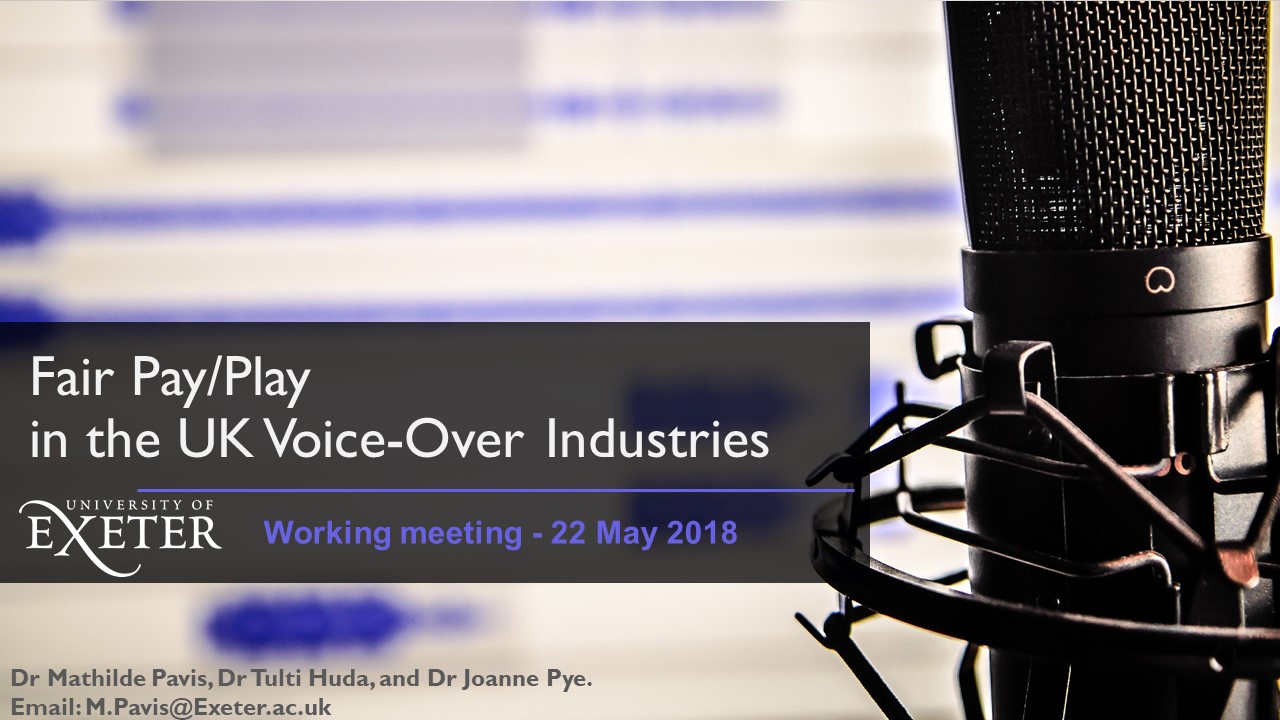Dr Mathilde Pavis and Dr Huda Tulti have been investigating if internet platforms designed to bring competition to the UK voice-over industry could cause low pay rates. Declining levels of pay has been a problem for years in the voice-over industries, according to industry stakeholders. The research carried out by specialists at Exeter Law School assesses the role played by online platforms in this downward trend.
In a meeting held in London on 22 May 2019, Dr Mathilde Pavis and Dr Huda Tulti led a round-table discussion with key industry stakeholders and organisations on the development of Uber-like online recruitment platforms and their impact on creative professionals such as voice-over actors.
The Exeter research team shared preliminary findings on the online survey they launched in January 2019. The aim of the survey was to capture the point of view of voice-over actors regarding the current state of the market. Survey questions focused on the level of remuneration, frequency of work, contractual agreements and intellectual property rights. According to Drs Pavis and Tulti it is evident from the data generated by the survey that voice-over actors find online recruitment platforms to be exploitative and poor-value. This appears to be consistent with the researchers’ analysis of these websites’ terms and conditions which include onerous contractual obligations without adequate financial compensation.
The research was welcome and very well-received by the participants in the meeting which included key industry players such as the UK Intellectual Property Office, the World Intellectual Property Organisation, Equity, Voquent, Another Tongue, Spotlight. The full report analysing the survey results and the researchers’ review of platforms’ terms and conditions is expected to be published online, in open access, in the summer 2019.
Dr Mathilde Pavis and Dr Huda Tulti collaborated with Dr Joe Pye on this project.

